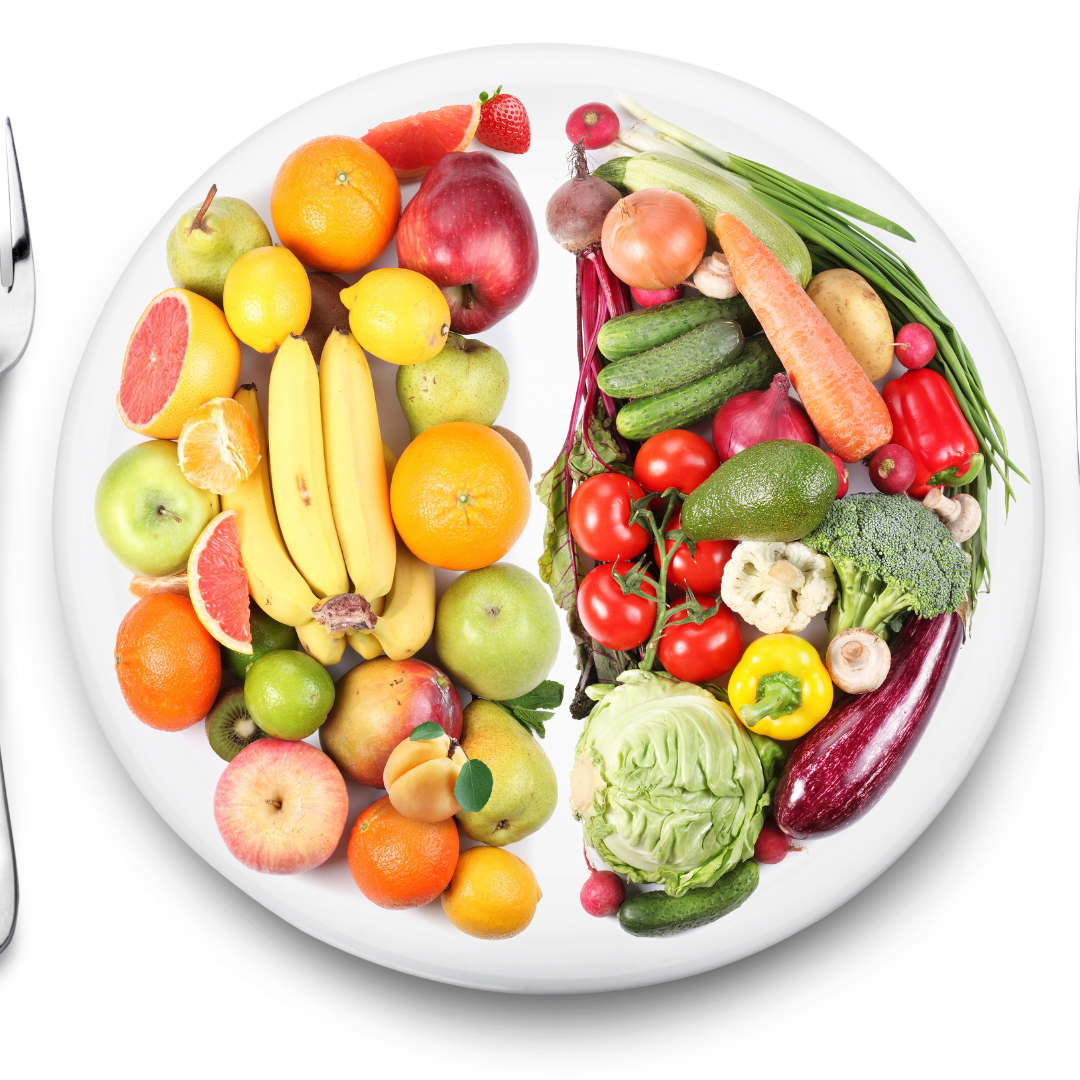Best Holistic Nutrition Tips
Best Holistic Nutrition Tips
Maintaining a healthy lifestyle is more crucial than ever in our fast-paced modern lives. A holistic approach to eating goes beyond nutrition, which is essential to our total health. Holistic nutrition emphasizes the connection between our body, mind, spirit, and food.
According to holistic nutrition, food may nourish our complete being, which acknowledges that it is more than just a source of calories.
It highlights the value of eating nutrient-dense, unprocessed whole foods to assist the body's natural healing processes.
A balanced and fulfilling existence that supports ideal health and vigour can be attained by embracing a holistic approach to diet.
In this article, we'll look at essential holistic nutrition guidelines to help you make deliberate decisions and better understand how your eating habits affect your overall health.
We will explore the foundational ideas of holistic nutrition and offer helpful advice to get you started on a nourishing journey, from choosing nutrient-dense foods to building a positive connection with food.
By embracing holistic eating, you may foster a beneficial relationship between your body, mind, and soul.
So, let's learn how holistic nutrition can improve your life and help you become healthier and happier.

Meaning Of Holistic Nutrition
Every person is unique and has various dietary needs, acknowledged by holistic nutrition. It considers factors like age, gender, genetics, degree of activity, and pre-existing medical conditions to generate tailored nutritional recommendations.
Bioavailability, which is stressed as important, is the term used to describe the body's capacity to absorb and utilize nutrients from meals.
The basic objective of holistic nutrition is to consume nutrient-dense foods that provide a variety of vitamins, minerals, antioxidants, and phytochemicals.
Some foods include fresh fruits and vegetables, whole grains, legumes, lean proteins, healthy fats, herbs, and spices.
A holistic diet recognizes the connection between our body, mind, and spirit. It acknowledges the relationship between physical health and emotional, psychological, and social well-being.
Holistic nutrition emphasizes stress management strategies, mindful eating habits, and encouraging a healthy connection with food.
Holistic nutrition also includes additional lifestyle choices that improve general wellness beyond eating.
It strongly emphasizes the value of consistent physical activity, enough sleep, stress management, and a positive social environment.
By addressing these holistic components of health, people can achieve optimal well-being beyond merely being free of illness.
Holistic nutrition acknowledges the significance of food quality and supply. It promotes choosing organic, locally sourced, and sustainably grown meals whenever possible.
This lessens exposure to the toxic substances, pesticides, and hazardous chemicals used in conventionally farmed food and processed goods.
Furthermore, holistic nutrition strongly emphasizes food preparation techniques like steaming, sautéing, and fermenting that maintain and improve nutritional content.
The consideration of the relationship between the mind and body is another part of holistic nutrition. It accepts that our feelings, thoughts, and beliefs can affect how we feel physically and digest.
Strategies such as mindful eating, meditation, and stress reduction are integrated to encourage a happy outlook and assist healthy digestion and nutrition absorption.
A holistic nutrition component is understanding the microbiome's function and gut health. It recognizes the crucial role of the trillions of bacteria in our digestive tract to maintain overall health.
Eating a balanced diet rich in fiber and fermented foods is advised to maintain healthy gut flora, enhance digestion, and boost nutrient absorption.
The ultimate goal of holistic nutrition is to sustain the body, mind, and soul in a comprehensive and integrative way.
It encourages people to take an active role in their health, empowers them to make choices that are best for them, and helps them to keep their health, energy, and sense of connection to the outside world.

Why Maintaining Holistic Nutrition Is Mandatory
Holistic eating is crucial because it acknowledges the complex relationship between physical, mental, and emotional health.
To achieve complete balance and harmony in our lives, we need to approach nutrition holistically.
Holistic nutrition encourages eating whole, unprocessed foods high in vital nutrients, vitamins, and minerals so that our bodies have the energy they require to perform at their best.
This strategy also highlights the significance of mindful eating, urging us to pay attention to our bodies cues, respect our hunger and fullness, and establish positive relationships with food.
We may optimize nutrition absorption, improve digestion, and maintain a healthy weight by fueling our bodies with healthful foods and mindful eating.
The effects of our surroundings and lifestyle decisions on our health are also considered by holistic nutrition.
It emphasizes making ethical and sustainable food choices to support the well-being of both ourselves and the world.
Our energy levels, moods, stress levels, mental clarity, and overall well-being can all be improved by holistically nourishing our bodies and brains.

Benefits Of Holistic Nutrition
A holistic diet offers many advantages for those prioritizing their health and well-being. A comprehensive approach to diet has the following unique benefits:
1. Improved Nutritional Intake
Wholesome nutrition strongly emphasizes consuming unprocessed, unbroken foods that are nutrient-dense in their natural state.
Focusing on nutrient-dense foods such as fruits, vegetables, whole grains, lean proteins, and healthy fats can ensure people obtain the variety of vitamins, minerals, antioxidants, and phytochemicals required for optimal health.
2. Better Digestion And Gut Health
A balanced gut microbiome is a key component of holistic nutrition. A well-rounded diet that includes foods high in fibre and probiotics helps to support gut health, improve digestion, and encourage regular bowel movements.
As a result, nutrient absorption is enhanced, bloating and pain are decreased, and overall digestive health is improved.

3. Enhanced Immunity
A well-fed body can better fend off viruses and maintain a robust immune system. Holistic nutrition emphasizes immune-stimulating foods with vital minerals, including vitamins C, D, zinc, and antioxidants.
People's ability to fend off infections and maintain their general health is improved by strengthening immunological function.
4. Enhanced Energy And Vitality
A holistic diet encourages a balanced intake of macronutrients and micronutrients to support optimal energy levels.
People feel prolonged energy throughout the day, less weariness, and increased focus and productivity when they consistently feed their bodies with nutrition.
5. Weight Management And Metabolic Health
Holistic nutrition promotes a balanced eating style and focuses on nourishing the body rather than employing rigorous regimens.
This strategy encourages healthy weight management by supplying enough food and boosting healthy metabolism.
People can reach and maintain a healthy weight while avoiding the dangers of yo-yo dieting by using a holistic approach to nutrition.

6. Mental Clarity And Emotional Well-Being
Nutrition greatly impacts mental and emotional well-being. A holistic diet focuses on nutrients that promote mental stability and brain function.
Whole-meal omega-3 fatty acids, B vitamins, and antioxidants facilitate a higher sense of overall well-being.
These nutrients also improve mood, reduce anxiety, and enhance cognitive performance.
7. Decreased Inflammation And Chronic Disease Risk
A holistic approach to diet emphasizes the anti-inflammatory qualities of foods such as fruits, vegetables, nuts, and seeds.
Chronic inflammation has been related to several illnesses, including heart disease, diabetes, and several types of cancer.
Eating an anti-inflammatory diet can help people reduce their chance of contracting common diseases and enhance their long-term health.
8. Eating And A Better Relationship With Food
Holistic nutrition supports activities that involve being thoughtful and present while consuming food.
The chance of emotional eating or eating disorders is decreased by using this strategy, which also encourages enjoyment and contentment with food.

9. Environmental And Ethical Considerations
Holistic nutrition considers how dietary choices affect the environment. Individuals can support a healthy planet and contribute to a more sustainable food system by prioritizing ethical and sustainable food options.
10. Hormonal Balance
Holistic eating can enhance hormonal health by supplying the nutrients required for hormone production and regulation.
Balanced meals that contain good fats, complex carbohydrates, and lean proteins help control blood sugar levels, encourage healthy hormone function, and lower the risk of hormonal abnormalities.
11. Healthy Aging
Holistic eating promotes healthy aging by offering vital nutrients and antioxidants that guard against cellular deterioration and oxidative stress.
Foods high in antioxidants, such as berries, leafy greens, and nuts, battle free radicals linked to aging and disease.

12. Better Sleep
Holistic nutrition practices are essential for regulating sleep. Some foods, like turkey and nuts, high in tryptophan, encourage the creation of serotonin and melatonin, which are also important for sleep regulation.
These nutrients can support healthy sleep and increase general restfulness when consumed as a balanced diet.
13. Stable Blood Sugar Levels
By emphasizing whole foods with a lower glycemic index, holistic nutrition helps to promote stable blood sugar levels.
Thus, preventing abrupt increases and decreases in blood sugar levels decreases the likelihood of insulin resistance, metabolic syndrome, and type 2 diabetes.
People can gain various advantages that pertain to various facets of their health and well-being by adopting a holistic approach to diet.
This all-encompassing strategy fosters a healthy and vibrant existence by nourishing the body and supporting important physiological processes.
Holistic Nutrition Tips
Here are some suggestions to help you develop a more holistic lifestyle. As always, consult your doctor before modifying your diet or way of life.

1. Eat Whole, Unprocessed Foods
Holistic nutrition's primary tenet is to consume only whole and unadulterated foods. By focusing on foods close to their natural condition, such as fruits, vegetables, whole grains, legumes, lean proteins, and healthy fats, you can provide your body with the vital elements for optimum health.
These foods are a good source of antioxidants, phytochemicals, fiber, vitamins, and minerals, promoting various body processes and improving general well-being.
Conversely, foods that have undergone extensive processing and refinement frequently lose nutrients and often contain unhealthy fats, sugars, and additives that may harm one's health.
Making whole, unprocessed foods your top priority allows you to maximize nutritional intake, fuel your body with healthful nutrients, and avoid the toxic chemicals in processed foods.
This supports a healthy weight, improves digestion, strengthens the immune system, and lowers the chance of developing chronic diseases, all of which promote vitality.

2. Prioritize Plant-Based Foods
Holistic nutrition emphasizes the importance of plant-based foods. Include a variety of vibrant fruits and vegetables in your meals to give your body the critical vitamins, minerals, antioxidants, and fiber it needs to maintain overall health and well-being.
A wide variety of nutrients found in plant-based meals help prevent disease, encourage healthy aging, and support several biological processes.
Leafy greens like spinach and kale contain minerals like iron, calcium, and vitamins A, C, and K. Berries also contain antioxidants that aid in reducing inflammation and fighting free radicals.
Broccoli, cauliflower, and Brussels sprouts are examples of cruciferous vegetables. These vegetables contain substances that aid in detoxification and have been associated with a reduced risk of developing certain malignancies.
A holistic diet emphasizes the importance of plant-based foods. Include a variety of vibrant fruits and vegetables in your meals to give your body the critical vitamins, minerals, antioxidants, and fiber it needs to maintain overall health and well-being.
A wide variety of nutrients found in plant-based meals help prevent disease, encourage healthy aging, and support several biological processes.

3. Hydrate Well
One essential aspect of holistic nutrition is maintaining sufficient hydration. The support of general health and well-being is greatly aided by water.
It facilitates digestion, helps deliver nutrients to cells, eliminates toxins, and controls body temperature. Consuming enough water throughout the day is essential to maintain proper hydration.
A basic recommendation is to strive for about 8 glasses (64 ounces) of water daily. The water consumption may vary depending on age, activity level, and climate.
Limiting the intake of sugary drinks, such as soda, sports drinks, and juices, is advisable because they frequently contain extra sugar and have less nutritious value.
Choose water as your main hydration source. Depending on herbs, herbal teas can be a tasty and hydrating alternative. Water can be refreshed by infusing it with fruits and spices.
You promote healthy digestion, nutrient absorption, detoxification, and overall wellness by prioritizing hydration.

4. Balance Macronutrients
One of the fundamental tenets of holistic nutrition is ensuring a balanced intake of macronutrients.
Carbohydrates, proteins, and fats, collectively known as macronutrients, are crucial for optimum health because they give the body the energy and fundamental building blocks it needs.
To support diverse biological activities, it's vital to incorporate sources of each macronutrient in your meals.
Whole grains, fruits, and vegetables contain complex carbs, which provide a slow release of energy and are high in fiber, vitamins, and minerals.
Lean proteins are essential for hormone production, immune system health, and muscle growth and repair.
Examples of lean proteins include poultry, fish, lentils, and tofu. The absorption of nutrients, the health of the brain, and the regulation of hormones are all influenced by healthy fats, such as those in avocados, nuts, seeds, and olive oil.
By including a variety of macronutrients in your diet, you provide your body with the building blocks it needs for optimal health.
It is crucial to choose high-quality sources of each macronutrient. Pay special attention to whole foods and avoid processed foods as much as possible.
A diversified nutrient profile can be attained by aiming for diverse colours and textures on your plate.
Adopting a balanced macronutrient consumption strategy helps you support energy levels, maintain a healthy weight, encourage satiety, and give your body the vital nutrients it requires to thrive.

5. Minimize Sugar Intake
Cutting back on sugar is crucial to holistic nutrition. In addition to having little nutritional value and being unhealthy when consumed excessively, refined sugars are typically found in processed foods and sweet beverages.
Reducing your consumption of refined sugar can lower your chance of developing chronic conditions, including obesity, diabetes, and heart disease.
Choose natural sweeteners like honey, maple syrup, or dates to replace processed sugars with healthier options.
Because they take longer for the body to digest, these replacements provide more nutrients and steady energy.
Use any sweetener, even natural ones, in moderation. This is essential. In addition, look for sugars buried in processed meals like sauces, condiments, and packaged snacks.
Read labels carefully and choose whole foods wherever you can to prevent excessive sugar consumption.
Knowing how much sugar you consume and making informed decisions can help you support stable blood sugar levels, maintain a healthy weight, and promote overall well-being.
Conclusion
A healthy diet, community, friends, emotional well-being, family, education, job satisfaction, and other factors are all part of the holistic nutrition theory, which holds that health encompasses many aspects.
Additionally, nutrition needs to be customized because every person has unique demands.
I hope you've also discovered that tackling a topic from many perspectives is always best. In many cases, the answer consists of many small changes to each aspect of the problem.
Remember that holistic nutrition is about adopting a holistic lifestyle that nourishes your entire self rather than following tight restrictions or deprivation.
You can start your journey to nutritional health, vitality, and balance by making thoughtful and well-informed decisions.
I trust you enjoyed this article on the Best Holistic Nutrition Tips. Please stay tuned for more blog posts soon. Take care!
JeannetteZ
>>>Please click here to read my all-inclusive article about A Comprehensive Guide To Healing Naturally<<<
>>>Are you interested in Natural Healing through Herbs? Please click here for my #1 Recommendation<<<
Your Opinion Is Important To Me
Do you have thoughts, ideas, or questions? I would love to hear from you. Please leave your questions, experiences, and remarks about the Best Holistic Nutrition Tips article in the comments below. You can also email me at Jeannette@Close-To-Nature.org.
Disclosure
This post may contain affiliate links. As an Amazon Associate and other affiliate programs, I earn from qualifying purchases at no extra cost to you. Please read my full affiliate disclosure.
You might also enjoy these blog posts:
Best Herbal Remedies For Skin Care
Best Naturopathic Remedies For Allergies
Best Ayurvedic Herbs For Digestion
Best Traditional Chinese Medicine For Natural Healing








